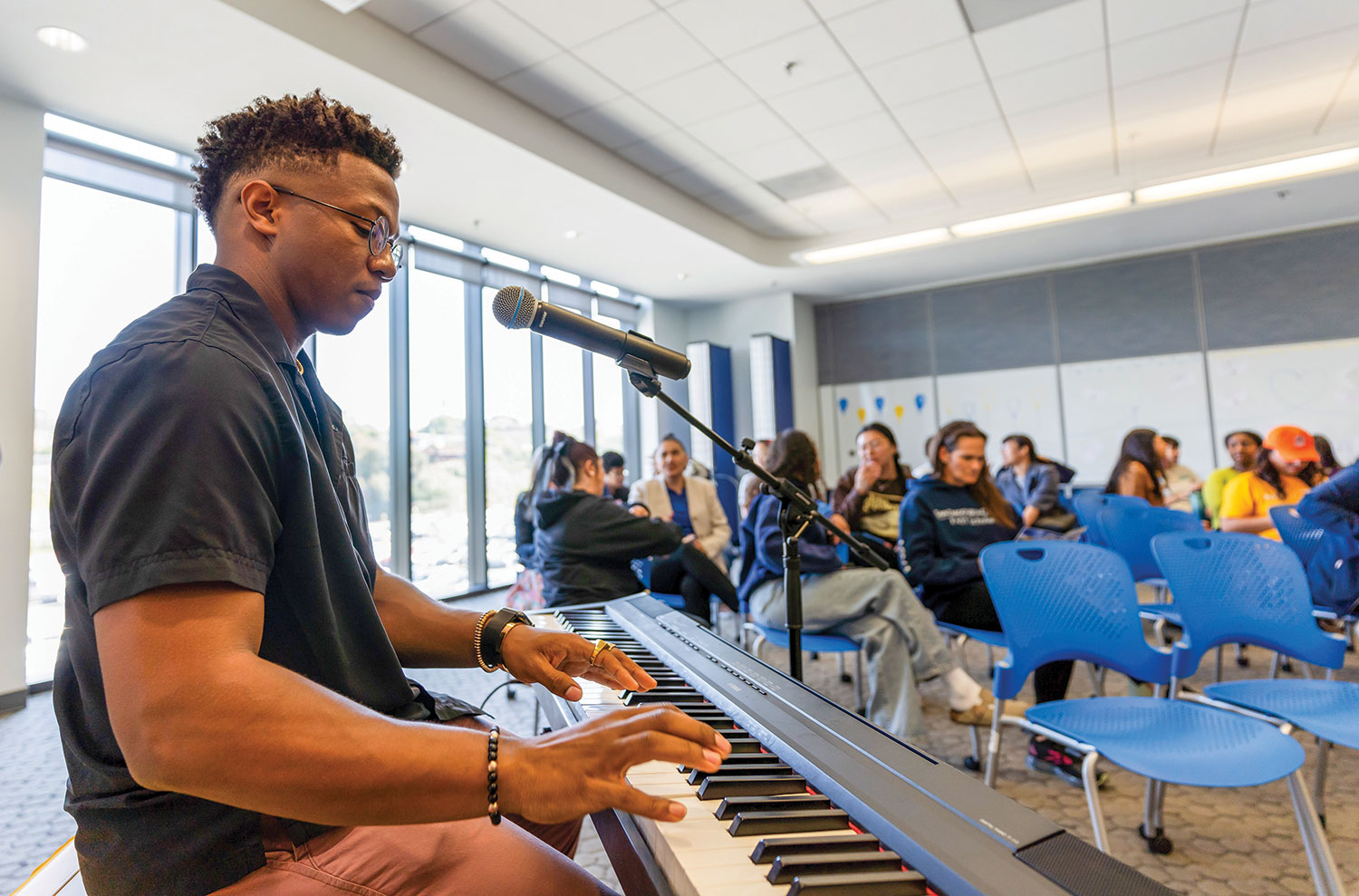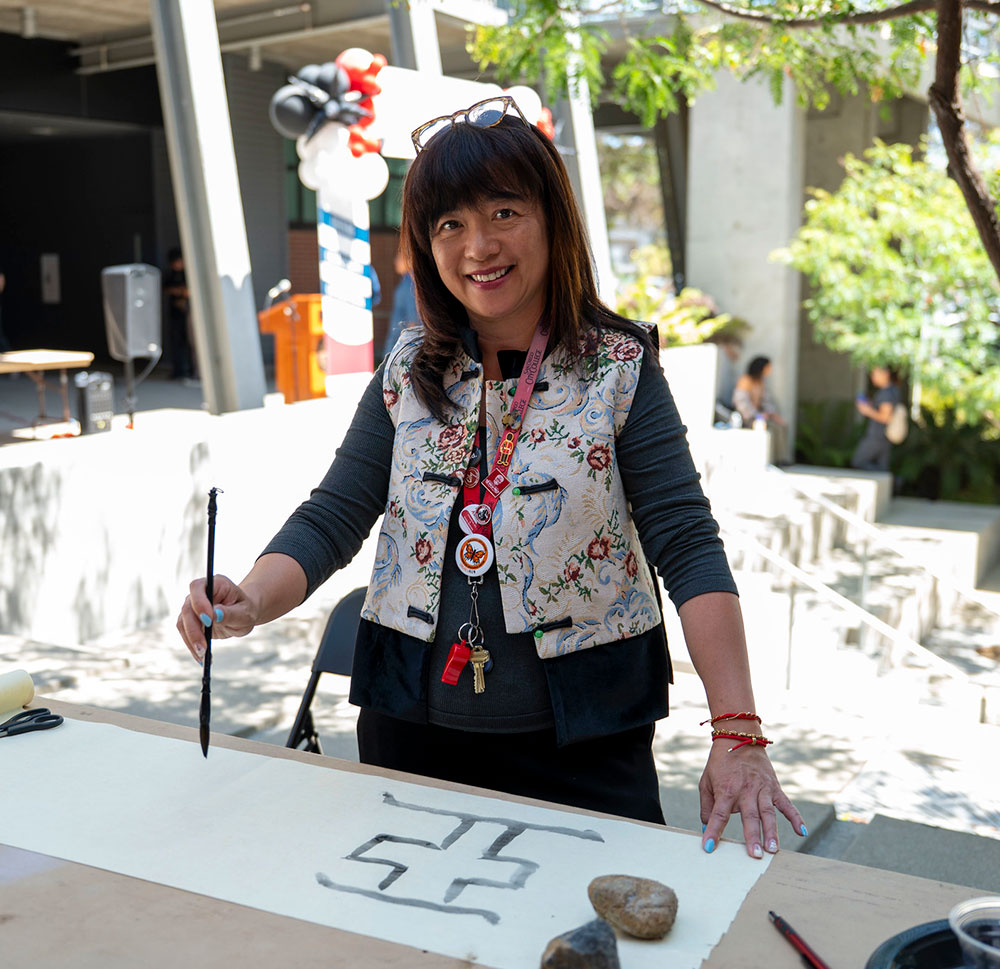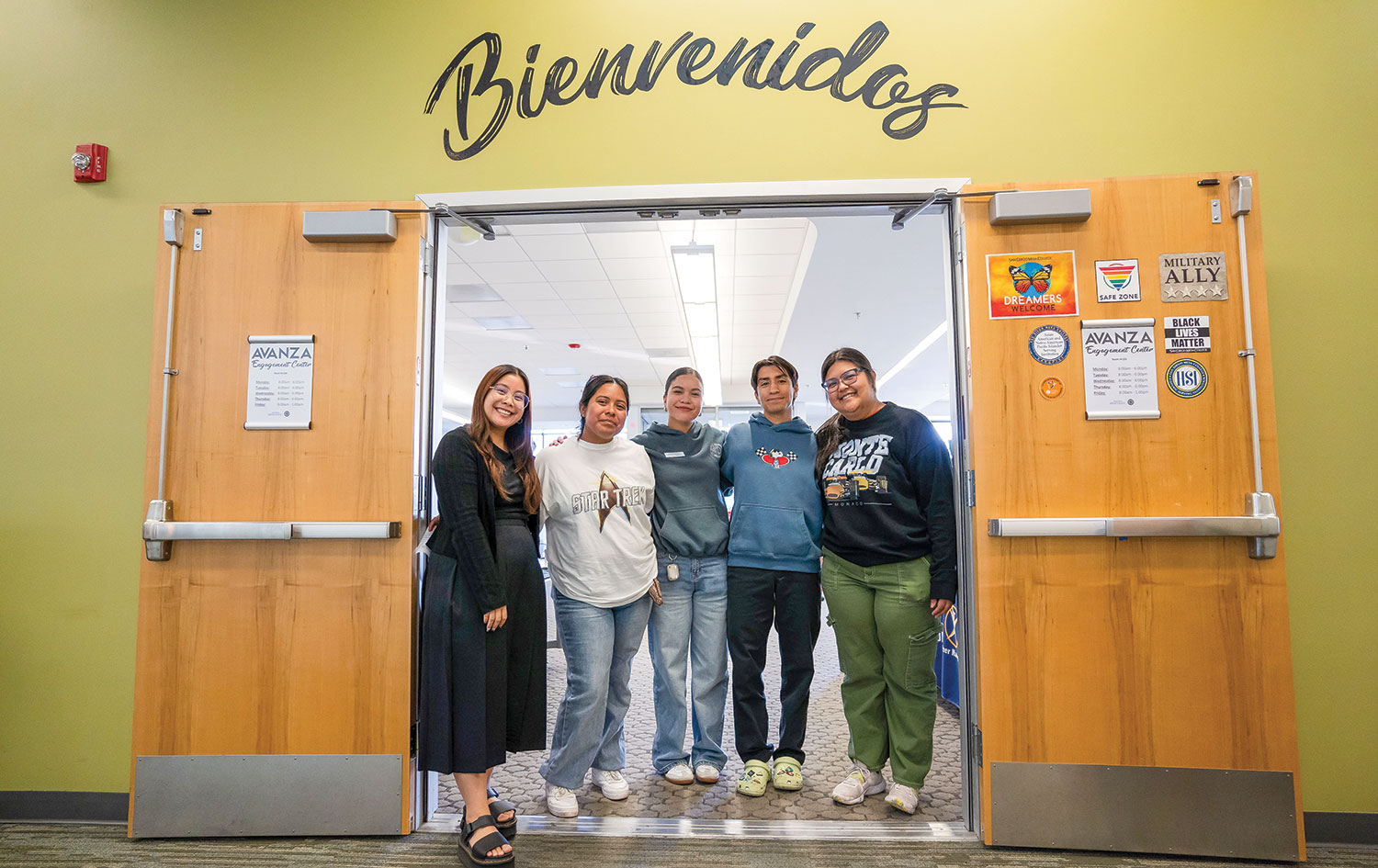
San Diego Mesa College is proving that, when it comes to affinity groups, there really is strength in numbers. That’s the driving force behind the college’s CommUnity Spaces, a collection of inviting, thoughtfully designed areas for student support groups, all created to foster greater engagement and a deeper sense of belonging.
At the heart of these CommUnity Spaces, located on the second floor of the I-400 building, is the KUP Unity Village — an acronym for Kapwa, Umoja, and Puente —a hub launched in the spring for instructional presentations, workshops, webinars, cultural events, and opportunities to meet with friends, faculty, and professional staff. Each program brings its own cultural perspective: Kapwa centers around Asian American, Pacific Islander, and Native Hawaiian experiences, Umoja draws from the African-American experience, and Puente is grounded in Hispanic culture.
“Students are looking for spaces to connect outside the classroom,” said Patricia “Trish” Guevarra, a Kapwa counselor, coordinator, and assistant professor.
Counselors point to the similarities that make the unification of Kapwa, Umoja, and Puente work so well: all three take a cohort-based approach, where students move through classes as a group, which helps build community. Coursework is culturally relevant, and each program is dedicated to boosting retention, graduation, and transfer rates.
A wide range of events bring these spaces to life. These spaces come to life with a mix of math study jams and relaxed conversations, mental health mindful moments and karaoke nights in the lounge and other common areas.
Students have felt the impact. “KUP Unity Village… became more than just a physical space, but it’s a place where I felt safe, seen, and supported,” said Angela Lopez, a Puente student. “The KUP Unity Village gave me a calm environment to study, rest, and connect with others who share similar values of inclusion, culture, and community.”
Umoja coordinator and counselor Jordan Nash emphasized that affinity programs are open to all interested students, just like how anyone can immerse themselves in Irish literature or Greek civilization, regardless of background. What’s key, Nash said, is that “it’s important for folks to know that these spaces are integral to college success for all.”
Proximal Support
Elsewhere in the I-400 building, are also the Dreamer Resource Center, CalWORKS office,
Promise Program advisers, and the Rising Scholars program for formerly incarcerated
students. In addition to the KUP Unity Village, Mesa College recently opened an expanded
Family Resource Center within the Learning Resource Center for student parents to
study with children in tow, attend student-parent workshops, and connect with others
navigating similar challenges. This is a critical resource at a campus where one in
four students is a parent juggling academics, work, and childcare.
“These spaces are a powerful expression of Mesa College’s deep commitment to equity
and student success,” said Mesa College President Ashanti T. Hands. “They serve as
daily reminders to our students that they are seen, that they belong here, and that
who they are — and who they’re becoming — matters. In these spaces, their aspirations
are met with unwavering support every step of the way.”
Districtwide Support for All Students

All SDCCD colleges have been working to launch unique support initiatives and spaces for a wide range of student groups. This includes, but is not limited to:
CITY COLLEGE: A newly opened Asian American, Native Hawaiian, and Pacific Islander (AANHPI) Connections Center.
MESA COLLEGE: The Kup Unity Village, I-104 Building. A place that hosts student support groups, workshops, and presentations.
MIRAMAR COLLEGE: An in-progress remodel of the I-building, where The Kaleidoscope will house the Leading Equity, Anti-Racism and Diversity (LEAD) Office, the Pride Center, and resource centers for Latinx, Black and African American, Native American, and Asian American Pacific Islander students.
COLLEGE OF CONTINUING EDUCATION: among its seven campuses are the Immigrant-Based Support Program Student Center at the César E. Chávez campus, an Intercultural Center at its Mid-City Campus, and, a new Veterans Center is in progress at the Educational Cultural Complex.
